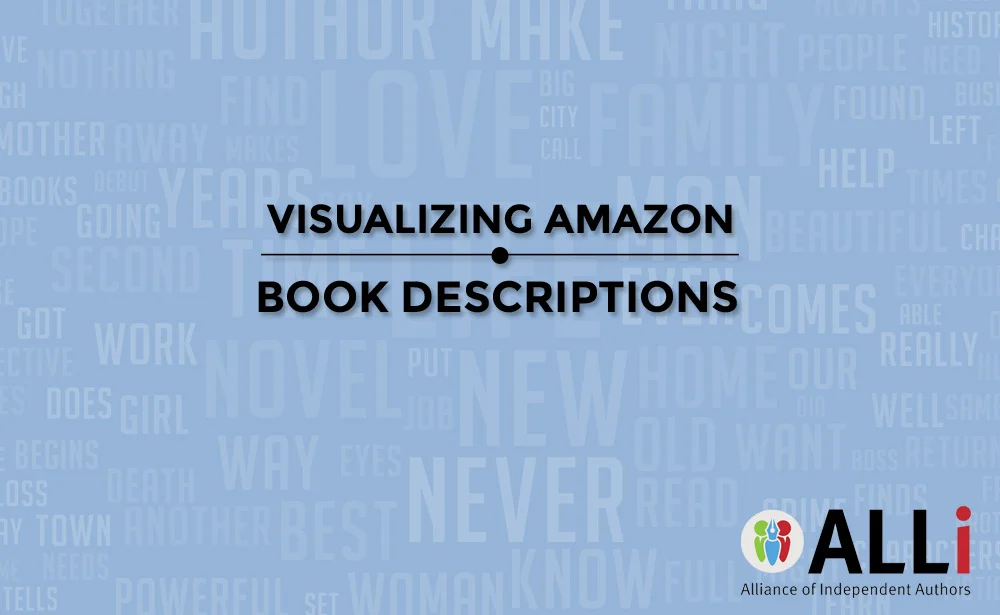
I've been dog-paddling through Amazon's sea of data quite a bit lately, and book descriptions have repeatedly caught my attention. The data I gathered raised a multitude of questions.
Are there common words in the description of best selling books? Are these terms clichés, or dependable tools, or a bit of both?
How do genre descriptions differ in their word choices? What about the length of the descriptions?
Why are so many thrillers described as “gripping”? If thrillers grip, what do other genres do?
Why do nearly 1 in 10 descriptions of Historical Mysteries feature a character named Thomas?
Who is this guy?
These are the questions that haunt my nights. Rather than waste the midnight hours with trivial endeavors like sleep, I dissected over 2000 book descriptions in Amazon's Paid Best Seller charts (US) to divine their secrets.
I can't resist a good data visualization, so I also took the opportunity to craft this data into a series of word clouds. The word clouds are based on the top 200 words (give or take a few) in each genre, minus the articles and conjunctions and other linguistic riff-raff. Rather than counting the total number of words, the word clouds map out the number of unique titles that feature that word in their description.
You can click on any word cloud to view a larger version. They're lovely to stare at when you should be writing and need something writing-adjacent to justify your procrastination.
Ready? Let's dive in.
The Whole Shebang: Kindle eBooks
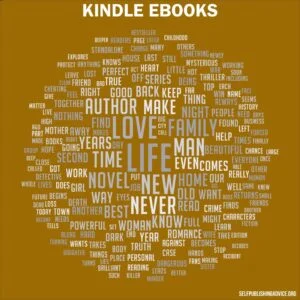 The top level of Amazon's ebook hierarchy provides an overview of common words used across all genres.
The top level of Amazon's ebook hierarchy provides an overview of common words used across all genres.
It's a well-known fact that books nourish the soul. I was pleased to see LIFE and LOVE at the top of nearly every category's word lists—even in Horror. Although LOVE tops the list by a significant margin, we also find a high number of romance-related terms like HEART, TOGETHER, CHEATING, and ROMANCE itself. (ROMANCE appears in the list even if you exclude its use as a genre: “just as their romance is deepening,” “her forbidden romance,” etc.)
Elements of plot and setting abound. MAN, WOMAN, FAMILY, and HOME are well represented in descriptions across all genres. MOTHER and DAUGHTER make the list, but curiously, FATHER and SON do not. Perhaps this supports the theory that women read more than men?
References to the books themselves are common: AUTHOR, NOVEL, SERIES, READ, BOOK, DEBUT, STANDALONE, CHARACTERS, PAGE/PAGES (as in “will keep you turning the pages”) and BESTSELLER appear frequently.
Mysteries, Thrillers, Suspense, Crime Fiction, and Historical Mysteries
A disproportionately high number of Thrillers are described as GRIPPING. That's a phenomenon I saw repeated in a number of genres: Mysteries tend to be RIVETING. Crime Fiction is CHILLING. Suspense is POWERFUL.
For lack of a technical term, I refer to these descriptors as “magic adjectives.” To qualify for that status, a word must appear more often in that category than any other; it must appear in a significant percentage of descriptions; and it must apply to the book rather than the author or elements of the story.
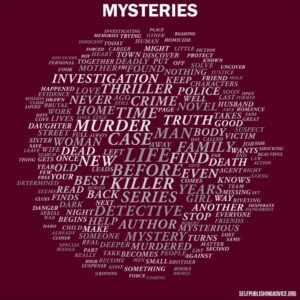 Despite heavy overlap between the five categories in this section, Mysteries are ranked #1 for the terms CASE, MURDER, TRUTH, INVESTIGATION, DETECTIVE, DEAD, and DEADLY. Furthermore, the frequency of each of these terms is at least 5% higher than any other genre.
Despite heavy overlap between the five categories in this section, Mysteries are ranked #1 for the terms CASE, MURDER, TRUTH, INVESTIGATION, DETECTIVE, DEAD, and DEADLY. Furthermore, the frequency of each of these terms is at least 5% higher than any other genre.
Mysteries fall almost exactly on the median length for descriptions, averaging 257 words.
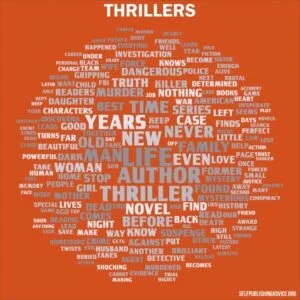 Thrillers also had more than a 5% lead on occurrences of the words FORMER, DANGEROUS, FORCE/FORCED, and BRILLIANT. FORMER referred to roles or occupations (fashion model, special agent, adversary) 88% of the time. Of those roles, former agents and former colleagues accounted for 16% each, while former lovers accounted for only 5% of those descriptions. BRILLIANT referred to the book in 53% of its usage, and to a character or their actions in the other 47%.
Thrillers also had more than a 5% lead on occurrences of the words FORMER, DANGEROUS, FORCE/FORCED, and BRILLIANT. FORMER referred to roles or occupations (fashion model, special agent, adversary) 88% of the time. Of those roles, former agents and former colleagues accounted for 16% each, while former lovers accounted for only 5% of those descriptions. BRILLIANT referred to the book in 53% of its usage, and to a character or their actions in the other 47%.
Thriller descriptions run somewhat long, averaging 272 words.
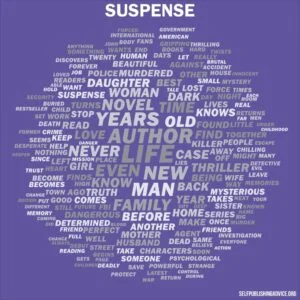 DAUGHTER is mentioned in 20% of Suspense descriptions, more than any other category. In more than half of those descriptions, the daughter in question is missing, abducted, or murdered.
DAUGHTER is mentioned in 20% of Suspense descriptions, more than any other category. In more than half of those descriptions, the daughter in question is missing, abducted, or murdered.
Suspense descriptions align closely with Thrillers in word frequency, but tend to be shorter, with an average of 253 words.
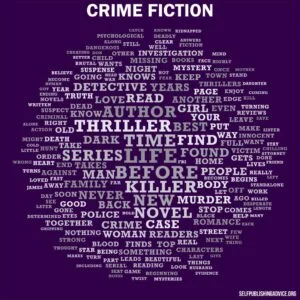 KILLER appears more often in Crime Fiction than any other genre, although Mystery is close behind.
KILLER appears more often in Crime Fiction than any other genre, although Mystery is close behind.
Other popular terms in Crime Fiction (more than 5% above other categories) include DARK, GIRL, MISSING, and BLOOD.
Crime Fiction descriptions had a higher average word count (292) than Thrillers (277), Mysteries (256), Suspense (253), or Historical Mysteries (219).
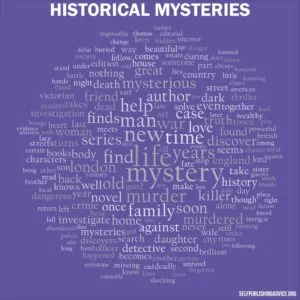 Descriptions of Historical Mysteries tend to be more focused on the setting than other genres. Favorite locations include LONDON (21%), ENGLAND (14%), VICTORIAN London or England (11%), the COUNTRY (12%, with a quarter of those being a COUNTRY ESTATE), the CITY (10%, with 3% set in NEW YORK CITY), AMERICAN settings (7%), various MEDIEVAL settings (6%), SPANISH elements (5%), GERMAN elements (5%), INDIA (5%), and SCOTLAND (4%).
Descriptions of Historical Mysteries tend to be more focused on the setting than other genres. Favorite locations include LONDON (21%), ENGLAND (14%), VICTORIAN London or England (11%), the COUNTRY (12%, with a quarter of those being a COUNTRY ESTATE), the CITY (10%, with 3% set in NEW YORK CITY), AMERICAN settings (7%), various MEDIEVAL settings (6%), SPANISH elements (5%), GERMAN elements (5%), INDIA (5%), and SCOTLAND (4%).
7% of Historical Mysteries identify themselves as REGENCY stories.
A significant number of Historical Mysteries feature titles of nobility, especially LORD (10%), EARL (8%), MARQUIS/MARQUESSE (8% collectively), DUKE (6%), KING (6%), and VISCOUNT (5%).
Children's eBooks and Teen & YA
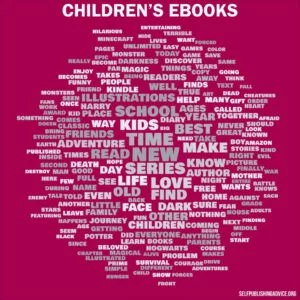 The magic adjective for Children's eBook descriptions is ENTERTAINING.
The magic adjective for Children's eBook descriptions is ENTERTAINING.
In Children's eBooks, kid-centric themes like SCHOOL, HOME, FAMILY, and ADVENTURE are plentiful. The influence of J.K. Rowling's Pottermore imprint is felt strongly here, peppering the list with terms like HOGWARTS and HARRY POTTER.
Children's book descriptions are by necessity directed at adults, so many of the dominant terms involve the books themselves: READ, READERS, KINDLE, AUTHOR, SERIES, KIDS, AGES, LEARN, and ILLUSTRATIONS are all high on the list. KIDS and ILLUSTRATIONS are unique to this category.
Children's eBook descriptions had the lowest word count of the categories examined, averaging 172 words.
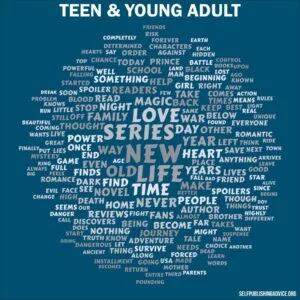 Teen & YA books closely mirror their adult counterparts, with more serious themes and descriptions that focus on both story elements and book promotion. Descriptions tended to be shorter than other categories, however, with an average of 217 words.
Teen & YA books closely mirror their adult counterparts, with more serious themes and descriptions that focus on both story elements and book promotion. Descriptions tended to be shorter than other categories, however, with an average of 217 words.
On the story side, Fantasy is strongly represented in terms like PRINCE, MAGIC, WAR, and POWER (used primarily in a supernatural sense).
On the promotional side, the usual book-related terms dominate (READERS, SERIES, NOVEL, REVIEWS, etc.). One notable standout is FANS, which appears 50% more often than the overall average.
Excluding mentions of the NEW YORK TIMES (6% of descriptions) and NEW YORK CITY/STATE (3%), NEW appears in nearly half of all descriptions in the Teen & YA category. The use falls into two contexts: an even split between book-related descriptions like “new series,” “new story,” or “a new twist on [subject]”; and plot-related descriptions like “new comrades,” “start a new life,” and “the new girl.” By comparison, NEW is seen in just over one third of Children's eBooks.
The magic adjective for Teen & YA fiction is ROMANTIC. Outside of this category, ROMANTIC appears only in a few, scattered instances under Historical Romance, Historical Fiction, Romance, and Erotica.
Romance and Erotica
The border between Erotica and other categories on Amazon is quite porous, and the category with the greatest overlap is Romance.
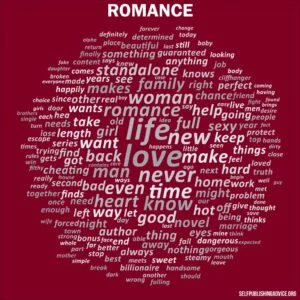 The magic adjective for Romance is HOT, with SEXY (a descriptor shared with Erotica) tied for second place.
The magic adjective for Romance is HOT, with SEXY (a descriptor shared with Erotica) tied for second place.
HEART ranks high on the word frequency list for Romance at nearly three times the average for other genres, and nearly a third higher than Erotica. Terms that ranked significantly higher than other categories include: WOMAN, BACK, WANT, CHEATING, STANDALONE, FULL LENGTH, HARD (41% “difficult,” 25% “intense,” 20% explicitly sexual, and 14% “solid”), PERFECT, KEEP, BAD BOY, and CHANCE.
The average Romance description aligns with the median length for all genres, around 257 words.
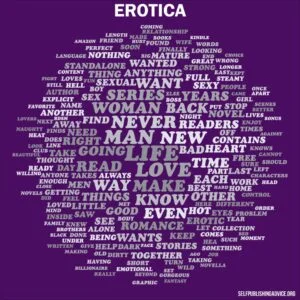 Erotica is a unique category in several aspects. It features more words unique to the category than any other. Erotica descriptions tend to be shorter than average, around 220 words, and favored more first-person narratives than other categories.
Erotica is a unique category in several aspects. It features more words unique to the category than any other. Erotica descriptions tend to be shorter than average, around 220 words, and favored more first-person narratives than other categories.
The unique and uncommon words generally focus on content labeling. SEX, EROTIC, WILD, CONTAINS, CLIFFHANGER, SEXUAL, EXPLICIT, GRAPHIC, NAUGHTY, and MATURE are frequently used in Erotica descriptions, but are unusual for most other categories. WORDS (word counts), SHORT STORIES, and COLLECTION are all more common in Top 100 Erotica descriptions as well.
The Top 100 list in Erotica is also notable for an unfortunate reason. Best sellers in this category committed more obvious violations of Amazon's policies than the other categories I examined. That's by no means a reflection on the genre as a whole, but it does point to Amazon's lack of enforcement in this area, and to the willingness of some authors to exploit that laxity to gain an advantage in a competitive environment.
Literary Fiction, Historical Fiction, and Biographies & Memoirs
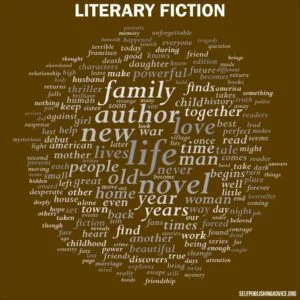 The broad category of Literary Fiction leans much more heavily towards author credentials and critical praise than most categories, likely due to its preponderance of big-name authors across multiple genres. Key terms include NOVEL, AUTHOR, NEW YORK TIMES, ACCLAIMED, GREATEST, WORK OF FICTION, and BEST SELLER.
The broad category of Literary Fiction leans much more heavily towards author credentials and critical praise than most categories, likely due to its preponderance of big-name authors across multiple genres. Key terms include NOVEL, AUTHOR, NEW YORK TIMES, ACCLAIMED, GREATEST, WORK OF FICTION, and BEST SELLER.
Literary Fiction's strongest contender for a magic adjective is BEAUTIFUL, which appears in 16% of the category's descriptions.
Descriptions run long at an average of 281 words.
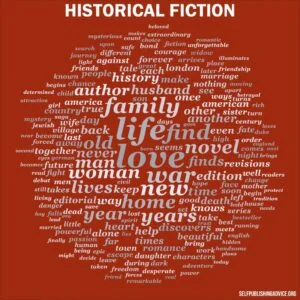 Historical Fiction features LOVE more often than other categories, narrowly edging past Romance to secure the top slot. Its story-driven descriptions heavily favor time-related terms like LIVES, WAR, OLD, HISTORY, TIME, FUTURE, FOREVER, and CENTURY, as well as a cluster of character-related terms like FAMILY, WOMAN, MAN, HUSBAND, and SON.
Historical Fiction features LOVE more often than other categories, narrowly edging past Romance to secure the top slot. Its story-driven descriptions heavily favor time-related terms like LIVES, WAR, OLD, HISTORY, TIME, FUTURE, FOREVER, and CENTURY, as well as a cluster of character-related terms like FAMILY, WOMAN, MAN, HUSBAND, and SON.
Certain book-related terms unusual for other categories are frequent occurrences here, including EDITION (for which Historical Fiction has the highest usage), EDITORIAL, and REVISIONS.
The magic adjective for Historical Fiction is MOVING. The average length of descriptions in this category is 246 words, close to the median for all titles.
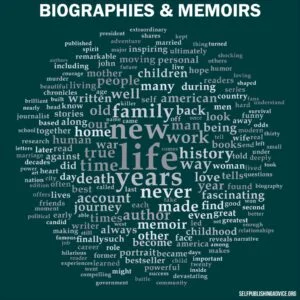 Fittingly, the most popular word in Biographies & Memoirs is LIFE, which appears more often in this category than in any other.
Fittingly, the most popular word in Biographies & Memoirs is LIFE, which appears more often in this category than in any other.
Like Historical Fiction, terms of time, place, and family are strongly represented, along with a high number of words unique to the genre. The best-represented terms are ones you might expect from a memoir: ACCOUNT, MEMOIR, PORTRAIT, CHRONICLES, CHILDHOOD, JOURNEY, RESEARCHED, and TELLS/TOLD. We also find AMERICAN, ENGLISH, CHILDREN, WRITTEN, GREATEST, MODERN, and HUMOR/HUMOUR in at least 10% of these descriptions.
The magic adjective for Biographies & Memoirs is FASCINATING, featured in approximately 1 in 5 descriptions. INSPIRING is also seen, although to a lesser degree. Descriptions averaged 291 words, higher than most genres.
Science Fiction, Fantasy, and Horror
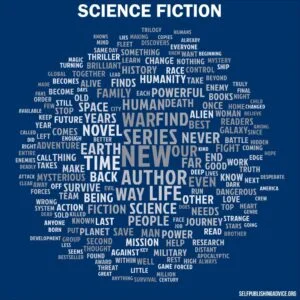 Terms unique (or very nearly unique) to this category include ALIEN, SPACE, HUMANITY, PLANET, GALAXY, MILITARY, FLEET, SHIP, and DISTANT.
Terms unique (or very nearly unique) to this category include ALIEN, SPACE, HUMANITY, PLANET, GALAXY, MILITARY, FLEET, SHIP, and DISTANT.
Terms which significantly outnumber other categories' frequencies include EARTH, HUMAN, FAR, SAVE, FIGHT, MISSION, TEAM, and RACE.
The magic adjective for Science Fiction is APOCALYPTIC. Description lengths average 240 words.
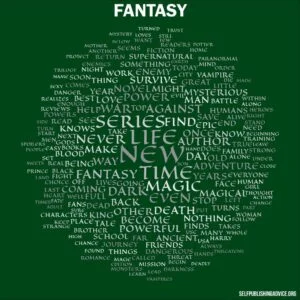 Frequently-used terms in Fantasy tend to be story-related, and often emphasize change, conflict, and struggle. Popular terms include MAGIC/MAGICAL, POWER, MIGHT, THREAT, CHANGE, SURVIVE, ADVENTURE, HEROES, ENEMY, BATTLE, ANCIENT, GODS, and RETURN.
Frequently-used terms in Fantasy tend to be story-related, and often emphasize change, conflict, and struggle. Popular terms include MAGIC/MAGICAL, POWER, MIGHT, THREAT, CHANGE, SURVIVE, ADVENTURE, HEROES, ENEMY, BATTLE, ANCIENT, GODS, and RETURN.
HARRY POTTER makes an appearance here as well.
The magic adjective for this category is EPIC. Descriptions average 234 words.
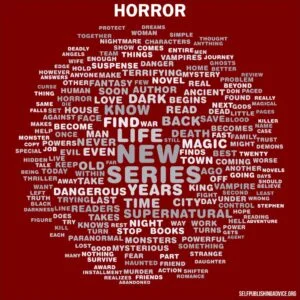 The trend towards multi-genre placement is extremely evident in Horror, as authors in competitive categories seek out their less-ideal, but less-crowded neighbors. With only 99,000 titles in Horror, it's a tempting target for incursions by Fantasy (201,000 titles), Erotica (288,164 titles), and even Romance (442,000 titles).
The trend towards multi-genre placement is extremely evident in Horror, as authors in competitive categories seek out their less-ideal, but less-crowded neighbors. With only 99,000 titles in Horror, it's a tempting target for incursions by Fantasy (201,000 titles), Erotica (288,164 titles), and even Romance (442,000 titles).
18% of Horror descriptions involve a CITY, double the frequency of any other genre. Terms more common to Horror include KING (69% royalty, 31% Stephen King), LAST, VAMPIRES, HOUSE (tied with Literary Fiction), TERRIFYING, EVIL, MONSTERS, DANGER, PARANORMAL, FAST, and FEAR.
The magic adjective for Horror is SUPERNATURAL. Descriptions average 219 words.
Nonfiction
Nonfiction is a high-level category that encompasses disparate subjects ranging from Memoirs to Business to Medicine to Cookbooks. As a result, the most frequently used words come from a hodgepodge of genres, but we can still see a few interesting patterns in the descriptions.
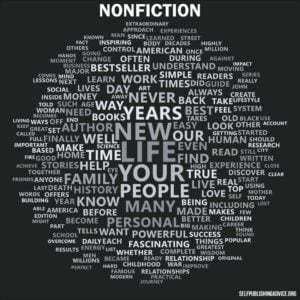 If you exclude Biographies & Memoirs (which comprise a large percentage of the Nonfiction best sellers), Nonfiction descriptions tend to focus on two areas: what the book can do for the reader, and the author's experience and background.
If you exclude Biographies & Memoirs (which comprise a large percentage of the Nonfiction best sellers), Nonfiction descriptions tend to focus on two areas: what the book can do for the reader, and the author's experience and background.
Again excluding Biographies & Memoirs, notable terms in Nonfiction include YEARS (usually of experience), PERSONAL (personal life, or personal experiences), POWERFUL, AUTHOR, BESTSELLER, NEW YORK TIMES, READ, BOOK/BOOKS, HUMAN, SIMPLE, UNDERSTAND, FINALLY, EXPERIENCE, OFFERS, and MAJOR.
The magic adjective for Nonfiction is EASY. Descriptions average 272 words.
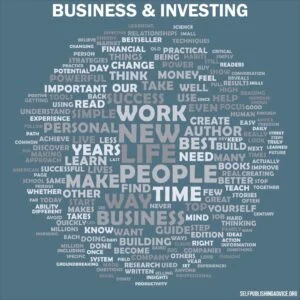 One might expect the most common word in Business & Investing to be MONEY or WEALTH. In fact, MONEY is only the 23rd most common word in this category, and WEALTH isn't even in the top 300.
One might expect the most common word in Business & Investing to be MONEY or WEALTH. In fact, MONEY is only the 23rd most common word in this category, and WEALTH isn't even in the top 300.
Like a majority of categories, LIFE is the #1 word. The #2 word is PEOPLE. And in line with this surprisingly human focus, the magic adjective for the category turns out to be PERSONAL.
Other highly-placed terms for this category include WORK, TIME, WAY/WAYS, BUSINESS, SUCCESS, SIMPLE, LEARN, TOP, GUIDE, CREATE, and BUILDING.
Business & Investing descriptions had the highest word counts, averaging 330 words.
Conclusion
It's important to note that much of this information falls into the realm of trivia. Including the most common words for a genre in your book's description is more likely to create word salad than to catapult that book into the Best Seller charts.
Nevertheless, we can gain useful insights by scouring the descriptions of best sellers in our preferred genres.
- Note whether the best selling descriptions in your genre focus primarily on story, setting, characters, or the book's attributes.
- Consider how prominently author credentials are featured in your categories' descriptions.
- Frequently-used words like the “magic adjectives” may be good candidates for keyword phrases. Watch for these recurring terms; if they're in the public consciousness, they might be phrases a reader would search for.
- Watch for developing trends in themes, wording, and subject that could mesh well with your current or future books.
- Pay attention to the hooks successful authors use to snare a reader's attention.
- Assemble a list of the words or sentences that have been styled in boldface in descriptions. Scan them for patterns to see what's being emphasized.
Researching the competition is a crucial step in developing your marketing materials. There are millions of titles on Amazon, and each one is an experiment to discover what attracts readers. When those experiments land a title on the Best Seller list, you can study, adopt, and adapt those successful techniques to your own books.
OVER TO YOU
What trends have you noticed in book descriptions? Join the conversation below! And If you enjoyed this article and the word cloud graphics, please feel free to share them.
RELATED POSTS


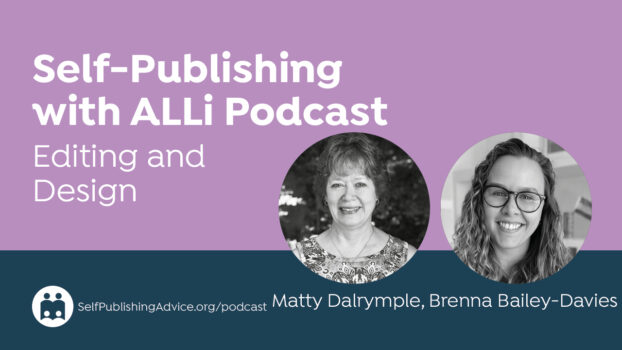
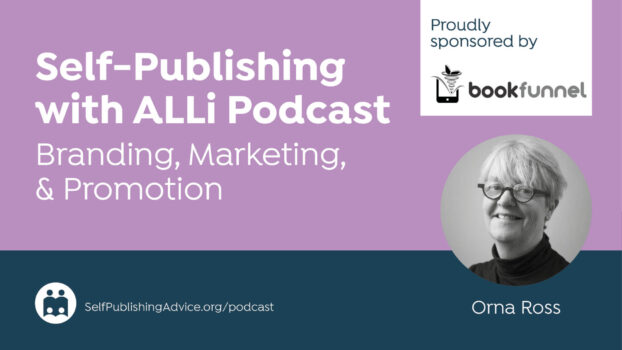
Thank you for the information. It was just what I needed to put together my book description.
Great post. Exactly what I need right now. I’m working on Amazon advertising and one of the keys is to find the right words. Thank you. This has helped to give me some ideas.
You’re a crazy geek, John Doppler. I’m glad you shared with us the fruits of your sleepless nights. All this info is useful and it also suggests a fun parlor game.